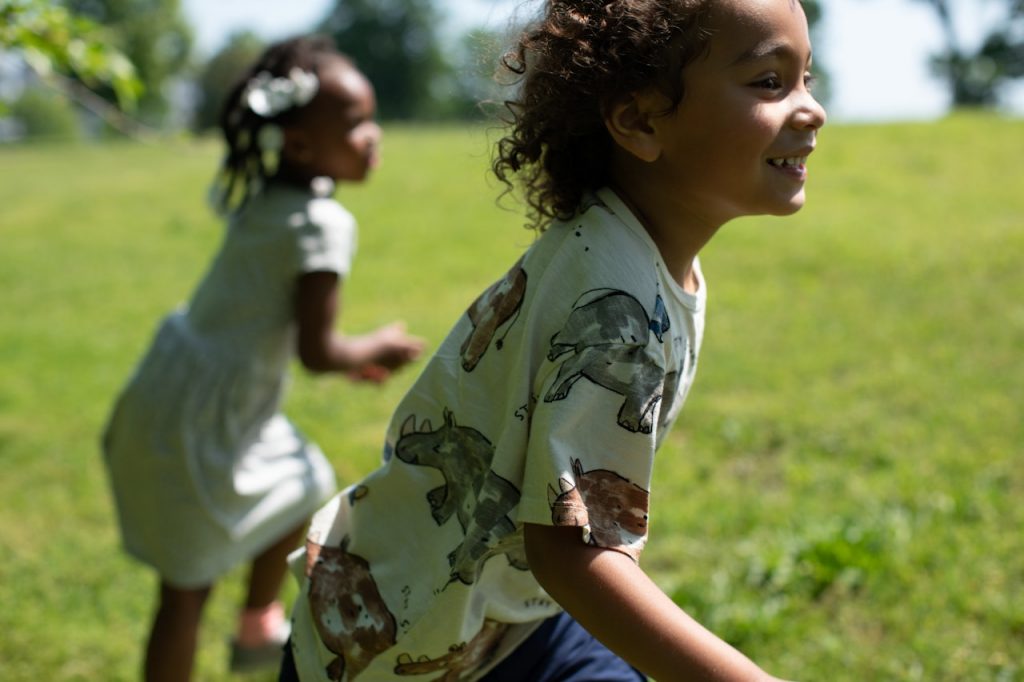By Ella Mendonsa
SPARCC was built on the foundation of bringing community autonomy to health, climate change, and racial equity. This approach is deliberate given the three are inextricably linked in shaping inclusive cities and successful outcomes.
Long-term studies and continuing research, like the Robert Wood Johnson Foundation’s 2022 Personal Experiences of U.S. Racial/Ethnic Minorities in Today’s Difficult Times, bear this out:
Black, Native American, and Latino families are significantly more likely to report serious problems with air and water quality, access to good jobs, and access to parks and green space where they live.
Robert Wood Johnson Foundation
For many Americans, health means completing medical forms, paying insurance premiums, and visiting doctors, emergency rooms, and urgent care centers. But clinical health – the medical infrastructure of hospitals, medical offices, and healthcare practitioners – only impacts 20% of our lived health experience, according to the Robert Wood Johnson Foundation and other experts. For the majority of our life, 80% of our health experience is impacted by social determinants other than access to affordable, quality healthcare like income and social protection, education, job security, working life conditions, food insecurity, housing, early childhood development, social inclusion, and structural conflict (World Health Organization). In 2020, the COVID-19 pandemic was a microcosm of how these social determinants interact with health and were especially telling in demonstrating the racialized health inequities in our cities.

Often the reaction to learning about this has been to engage in “health redlining” or focus blame on the communities that are being impacted and not the foundational racist systems that got us here. Legislators and even some doctors have falsely suggested that increased rates of COVID-19 mortality in Black communities were due to a lack of cleanliness or hygiene. In truth, the evidence points to discriminatory healthcare barriers in place for Black residents, like jobs that required in-person attendance at the height of the pandemic. These same “blame game” tactics are used when discussing other illnesses that have a disproportionate effect on black communities like asthma and obesity.
Many of the cities and communities we work and live in have been historically disinvested in, negatively impacting the mental, social, and physical health of residents. Due to racially discriminatory housing practices from the 1930s, communities of color were pushed into lower-quality housing stock, and neighborhoods were designed to keep Black residents and people of color in those areas rather than allowing them access to the wider city and greater resources. These intentional policies are why people of color continue to bear the burden of living in hotter neighborhoods and have a higher risk of heat-related health impacts.
These historic planning decisions play a major part in our lived experience of health. As climate change worsens, vulnerable communities are already disproportionately suffering from the impacts of extreme heat, flooding, and even violence. Communities of color and low-income communities built to be hotter and less transit-accessible are facing extreme heat, which puts residents at an increased risk of respiratory, neurological, and heart issues, as well as greater risks of cancer and lower life expectancy.
Everything is Health and Being Healthy is Everything
Neighborhoods are and can be designed to support residents in building a healthy, resilient, and safe community. This means neighborhoods that have access to affordable, quality healthcare, but it also neighborhoods that have access to parks, job opportunities, and quality, affordable housing stock that is inclusive. This intrinsic connection between health and where we live means that SPARCC’s work–from community ownership to park equity–is rooted in the health and well-being of communities. In addition to the capital projects that touch on health, our local partners have focused on health in specific ways:
Changing Narratives
In their plan to shift the narrative from health behavior change to tackling health inequities in the system, our partners at Atlanta Regional Collaborative for Health Improvement developed a framework that focuses on measuring and building wellness.
Act for Federal Health Equity Coalition
Our partners in San Francisco, Denver, Memphis, and Atlanta have formed a community-centered coalition to fight for affirmative solutions that actively support health in communities of color and low-income communities on a national front through the Act for Federal Health Equity coalition. In 2020, this group of SPARCC partners spear-headed an initiative to create a durable long-term federal funding stream for critical community health initiatives and a system of community health hubs to shift power back to communities to make their own health decisions. The partners have been working with legislators across states to design a pilot program focused on ending racialized health inequities and supporting affirmative wellness and health solutions.
Connecting the Dots: Climate & Health
In North Memphis, Tennessee, our local partners are connecting to their local EPA representatives to create a dialogue on Superfund sites that are continuing to impact residents. We’ve also invested SPARCC capital to increase access to healthcare, particularly for vulnerable community members in Chicago through the Esperanza Center.
Healing Centered Practices
SPARCC has also offered partners a leadership series focused on trauma-informed care and a healing-centered framework. Generational trauma is often a health crisis that goes unaddressed. Mental and physical health go hand-in-hand. Many of the physical health conditions we see in Black communities stem from mental health issues that have existed for years. If we are not addressing long-standing traumas then our work will be in vain, so SPARCC knew that this kind of support would be integral to the work being successful.
In our six years, SPARCC has worked alongside our partners to shift the narrative and work toward a culture of health and wellness for communities of color grounded in resident voices. Communities that have power in the decision-making space are making better decisions for their long-term health. Without centering residents of color and low-income households in climate adaptation, resilience planning, and mitigation solutions, cities and counties can be unintentionally continuing past harms. It’s time we throw away old practices and focus on healing our communities from the ground up.